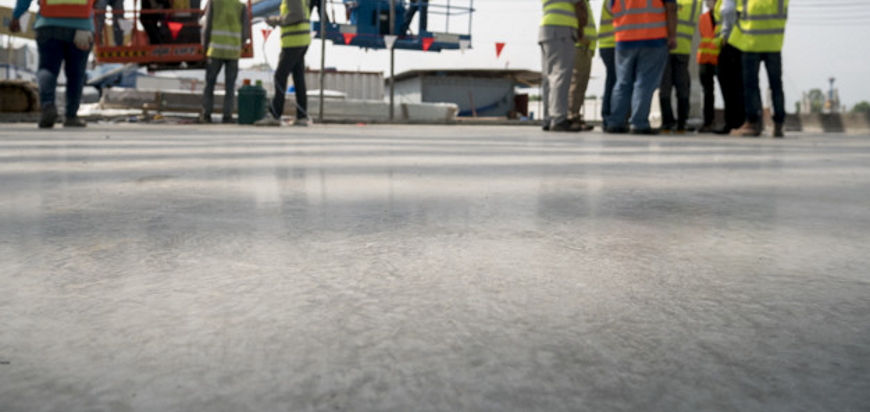
Industrial Flooring
Industrial Epoxy Flooring Solutions
There are many challenges architects, engineers and designers face when it comes to choosing industrial flooring. With so many building elements that must be selected and specified for each project, it would be impractical to become an expert on the various types of industrial flooring and the advantages of each in different situations. Will epoxy or polyurethane resin be used? Is the floor non-slip, chemical resistant or closed-pore? Questions like these can make a big difference in choosing the right type of industrial flooring solution for the planned use of a floor.
The Importance of Industrial Flooring
A warehouse floor that is subject to forklift traffic throughout the day has different needs than a warehouse in a small retail store that is rarely subject to foot traffic. The type of traffic will help you determine the right industrial flooring material for your purposes; For example, a parking lot floor needs an ultra-hard, durable surface to withstand constant vehicle traffic. Conversely, a gym floor may be better suited to the resilient nature of a polyurethane floor covering. Traffic volume is an important factor in industrial flooring, especially as it affects cleaning, maintenance and repair costs.
The purpose of use of the area is an important consideration when applying industrial flooring. If the floor is in a food production facility that processes milk and dairy products, the polyurethane floor coating is a better choice since organic lactic acids can corrode and turn yellow an epoxy resin floor. Or industries exposed to sulfuric acids specifically need industrial flooring application.
Industrial Flooring Properties
Industrial flooring systems require the production of products suitable for the intended use of the floor. Anti-slip industrial flooring is essential for workplace safety, especially in wet conditions. Industrial flooring products are produced by Orhun Kimya to resist damage caused by heavy vehicle traffic and to prevent chemical damage or corrosion. Moisture resistant industrial flooring helps prevent damage or moisture ingress that can cause mold and bacterial growth. Finally, it is important to use hygienically polished industrial floors in the food processing and pharmaceutical industries where cleanliness is paramount.
Identifying your industrial business’s floor needs can make choosing an industrial flooring easier. If you want more information or help in deciding which type of resin floor is right for you, you can contact Orhun Kimya.